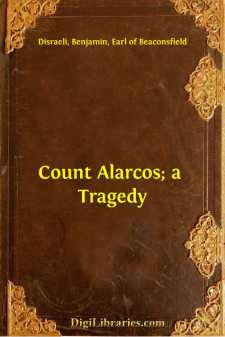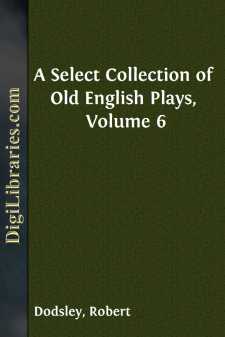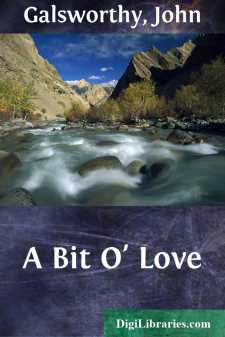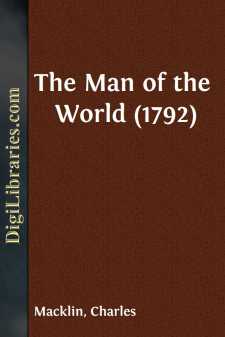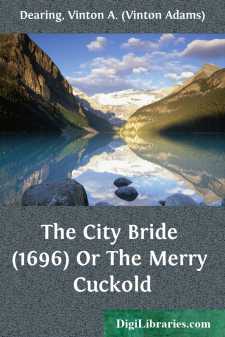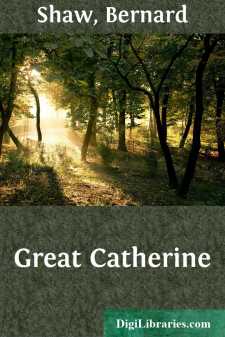Drama
- American 43
- Ancient, Classical & Medieval 45
- Asian 7
- Caribbean & Latin American 2
- Continental European 50
- English, Irish, Scottish, Welsh
- General 105
- Middle Eastern 1
- Religious & Liturgical 1
- Shakespeare 1
English, Irish, Scottish, Welsh Books
Sort by:
ACT I SCENE 1 A Street in Burgos; the Cathedral in the distance. [Enter Two Courtiers.] I:1:1 1ST COURT.The Prince of Hungary dismissed? I:1:2 2ND COURT.IndeedSo runs the rumour. I:1:3 1ST COURT.Why the spousal noteStill floats upon the air! I:1:4 2ND COURT.Myself this mornBeheld the Infanta's entrance, as she threw,Proud as some hitless barb, her haughty glanceOn our assembled chiefs. I:1:5 1ST...
more...
by:
Robert Dodsley
Four of the five ensuing Plays belong to a peculiar class of our early dramatic performances never yet especially noticed, nor sufficiently illustrated. Many specimens have of late years been printed, and reprinted, of Miracle-plays, of Moral-plays, and of productions written in the most matured period of our dramatic literature; but little or nothing has been done to afford information respecting a...
more...
by:
John Galsworthy
ACT I It is Ascension Day in a village of the West. In the lowpanelled hall-sittingroom of the BURLACOMBE'S farmhouse on thevillage green, MICHAEL STRANGWAY, a clerical collar round histhroat and a dark Norfolk jacket on his back, is playing theflute before a very large framed photograph of a woman, which isthe only picture on the walls. His age is about thirty-five hisfigure thin and very upright...
more...
by:
Robert Dodsley
INTERLUDE OF YOUTH. CHARITY.Jesu that his arms did spread,And on a tree was done to dead,From all perils he you defend!I desire audience till I have made an end,For I am come from God aboveTo occupy his laws to your behove,And am named Charity;There may no man saved beWithout the help of me,For he that Charity doth refuse,Other virtues though he do use,Without Charity it will not be,For it is written...
more...
by:
Charles Macklin
INTRODUCTION During his extraordinarily long career as an actor, Charles Macklin wrote several plays. The earliest is King Henry VII; or, The Popish Imposter, a tragedy based on the Perkin Warbeck story, performed at Drury Lane 18 January 1745/6 and published the same year. As the Preface states, it "was design'd as a Kind of Mirror to the present Rebellion"; and it provided the author...
more...
ACT I [Roadside with big stones, etc., on the right; low loose wall at back with gap near centre; at left, ruined doorway of church with bushes beside it. Martin Doul and Mary Doul grope in on left and pass over to stones on right, where they sit.] MARY DOUL. What place are we now, Martin Doul? MARTIN DOUL. Passing the gap. MARY DOUL — [raising her head.] — The length of that! Well, the sun's...
more...
by:
Bernard Shaw
ACT I Great George Street, Westminster, is the address of Doyle and Broadbent, civil engineers. On the threshold one reads that the firm consists of Mr Lawrence Doyle and Mr Thomas Broadbent, and that their rooms are on the first floor. Most of their rooms are private; for the partners, being bachelors and bosom friends, live there; and the door marked Private, next the clerks' office, is their...
more...
INTRODUCTION The City Bride, by Joseph Harris, is of special interest as the only adaptation from the canon of John Webster to have come upon the stage in the Restoration. Nahum Tate’s Injur’d Love: or, The Cruel Husband is an adaptation of The White Devil, but it was never acted and was not printed until 1707. The City Bride is taken from A Cure for a Cuckold, in which William Rowley and perhaps...
more...
Scene: A plantation of thin young trees, in a misty and rainy twilight; some woodland blossom showing the patches on the earth between the stems. The Stranger is discovered, a cloaked figure with a pointed hood. His costume might belong to modern or any other time, and the conical hood is so drawn over the head that little can be seen of the face. A distant voice, a woman's, is heard,...
more...
by:
Bernard Shaw
Exception has been taken to the title of this seeming tomfoolery on the ground that the Catherine it represents is not Great Catherine, but the Catherine whose gallantries provide some of the lightest pages of modern history. Great Catherine, it is said, was the Catherine whose diplomacy, whose campaigns and conquests, whose plans of Liberal reform, whose correspondence with Grimm and Voltaire enabled...
more...


